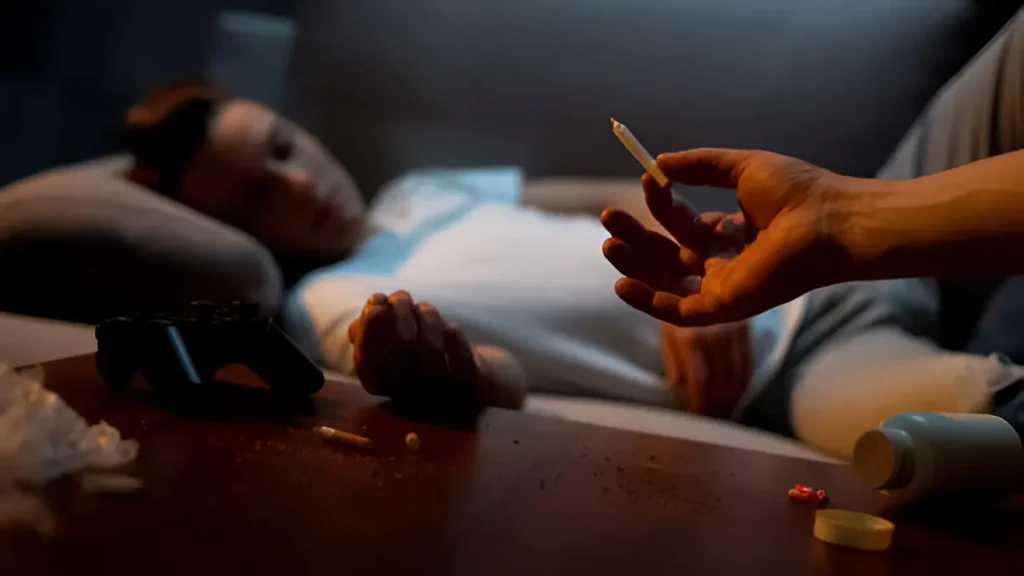While we may associate addiction generally with adults, it isn’t an exclusive club and, particularly these days where drugs and alcohol are more accessible than ever before, teenagers can be at risk.
In fact, our teenage years, when we’re growing up, experimenting, feeling peer pressure more than ever, and more vulnerable in general, can put us at significant risk and addiction can develop quickly, whether that be drugs and alcohol, or even the likes of social media, gaming and vaping.
As adults in care-giving positions, it’s important to spot the signs and suggest drug help if you feel that a teenager may be starting to use substances or developing unhealthy relationships with certain parts of their life. That is easier said than done, though, with teenagers naturally going through mood swings, often a telltale sign of drug addiction, as they develop.
However, there are certain patterns that can indicate addiction, and here’s what to look out for…
Sudden Changes in Behaviour
As mentioned, teenagers are known for their unpredictable moods, but it is still important to be wary if there are sudden changes in their behaviour. That could be becoming more secretive, aggressive or being more withdrawn than normal. They may begin avoiding friends, yourself, other family members and spend long periods of time alone without any real explanation for it.
Things like lying about whereabouts can also become more common, or money going missing. It can be easy to dismiss this as “a phase” or them being a “typical teenager” but that might not be the case, especially if they are out of character and persistent.
Decline in Academic Performance
How a child is both performing and behaving at school can also be a common sign. Addiction has a major impact on motivation, mental health and focus and students using drugs or developing an addiction will end up seeing their grades drop, they’ll miss deadlines and even play truant.
Struggles at school, of course, can be caused by many things, but if a teacher is highlighting this to you, there is something wrong that needs addressing, and it could well be addiction.
Physical Health and Appearance Changes
One of the more noticeable signs is changes in physical health. And it can happen quite quickly. Weight loss or gain is one of the more common, while you may also notice things like bloodshot eyes, dry, duller skin, poor personal hygiene and even unusual smells on clothing.
Changes in sleeping patterns can also occur, and while it’s not beyond the norm for a teen to sleep in, it might be a red flag if combined with some of the other signs in this article.
Loss of Interest in Hobbies and Activities
A teenager who suddenly loses interest in activities they previously enjoyed may be struggling with more than typical teenage boredom. Addiction often replaces other interests, leaving little room for sports, music, art, or socialising with friends outside a specific circle.
This loss of interest can also be accompanied by isolation, spending more time alone in their room, or avoiding family outings. If a teenager becomes apathetic about everything except one specific activity, such as gaming for hours on end or disappearing to drink with friends, it may signal an unhealthy dependency.
Increased Risk-Taking and Rule-Breaking
Teenagers naturally test limits, but persistent risk-taking behaviour is something to watch for. This might include reckless driving, getting into fights, stealing, or breaking curfews regularly. Substance use can lower inhibitions and lead to poor decision-making, putting teenagers at risk of harming themselves or others.
A notable shift in peer groups is also telling. Associating with older or unfamiliar individuals known for risky behaviour can increase the likelihood of addiction taking hold.
What to Do?
If you do notice any of these, it’s important to approach with caution. They don’t necessarily mean someone is living with addiction. There could be other explanations. Of course, what it perhaps does mean is that there is something not quite right, so take the steps to ask if they are ok, find out what’s going on in their lives and see how you can help.
It might be difficult, but there are ways to get your teen to open up, and take the right approach and you can help them get their lives back on track.
Also Read-How to Become Raja Luck in Real Life


